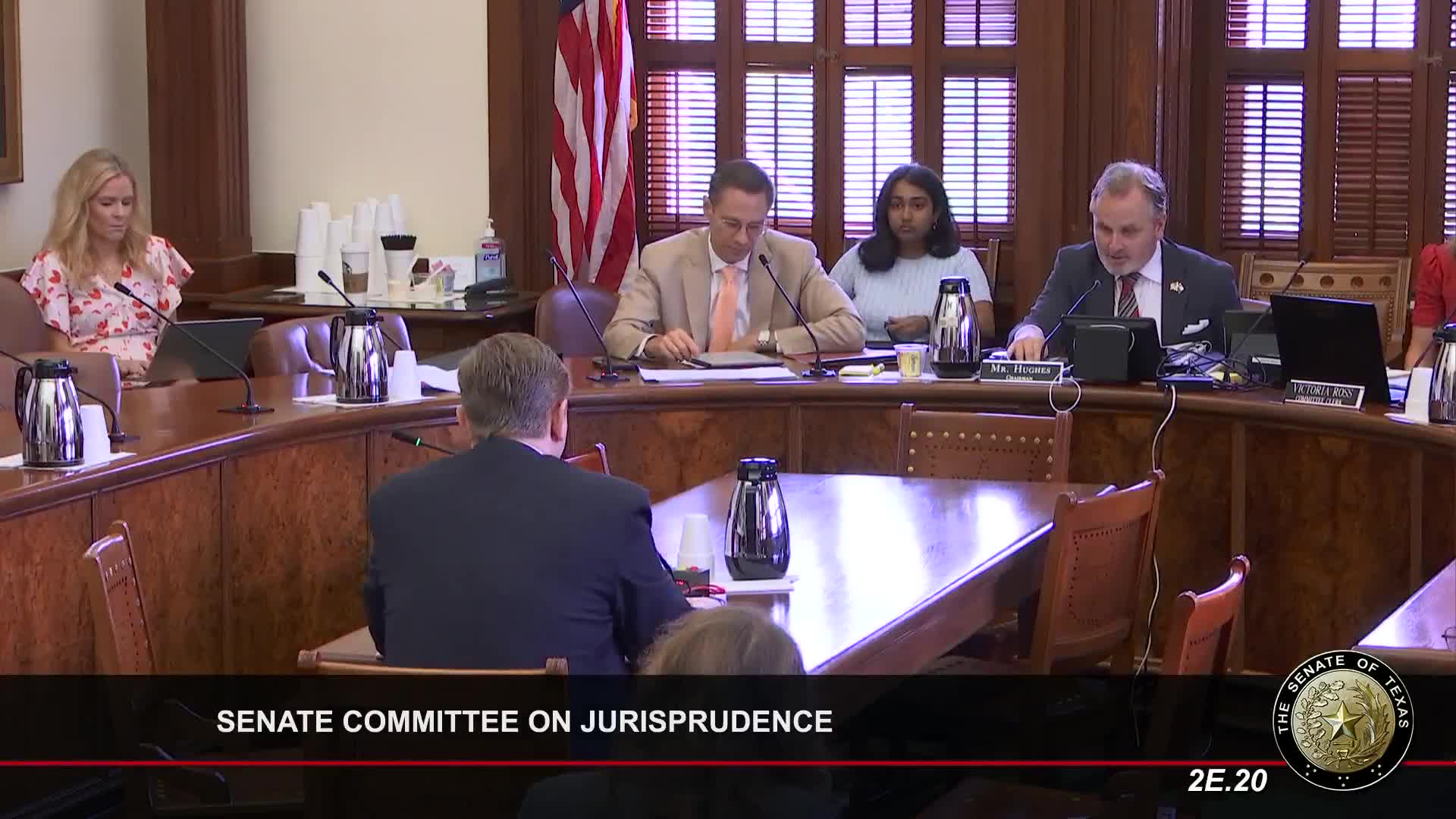Article not found
This article is no longer available. But don't worry—we've gathered other articles that discuss the same topic.
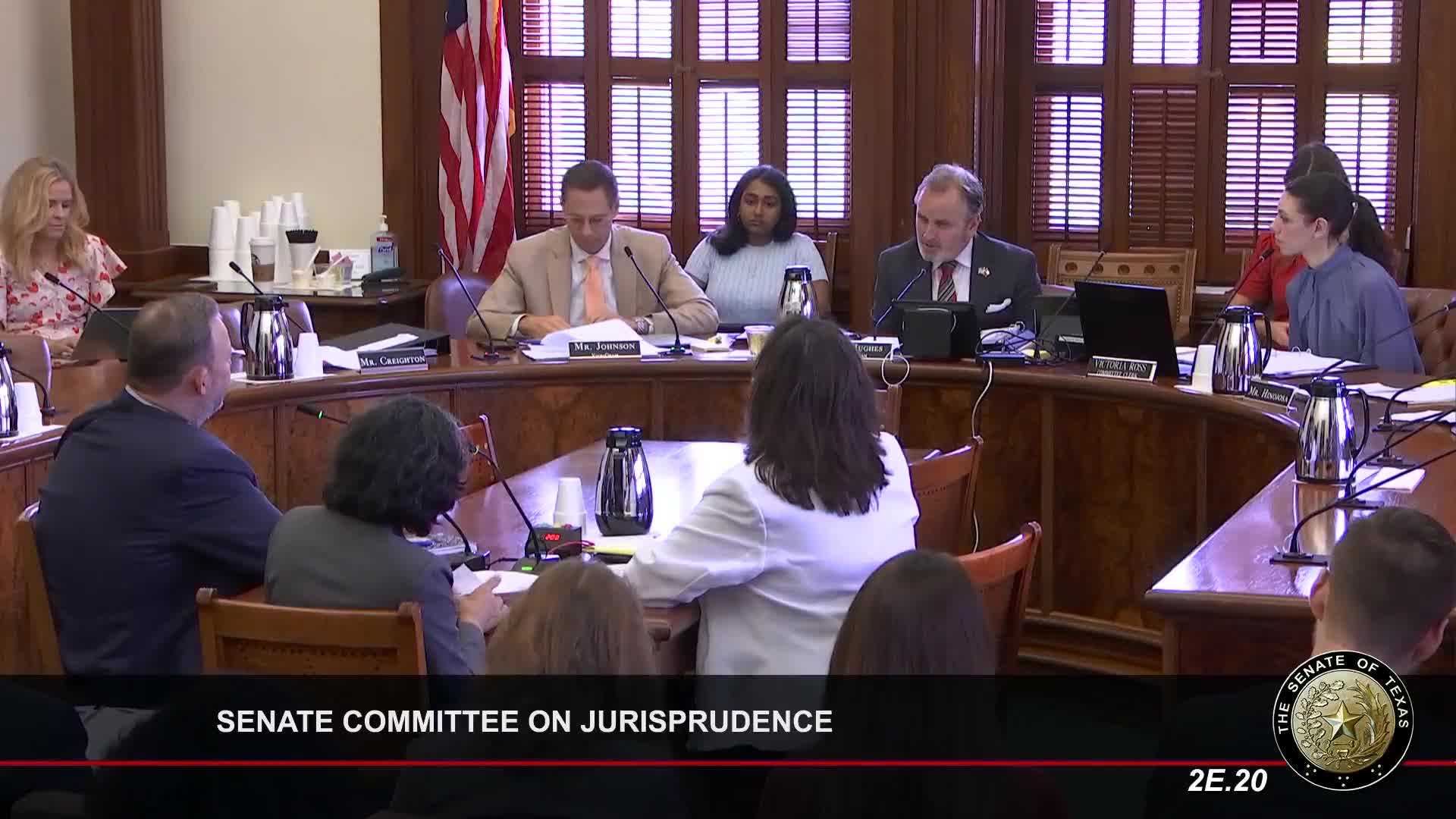
Senate committee hears bill widening turnover receivers’ powers; consumer advocates warn of harm
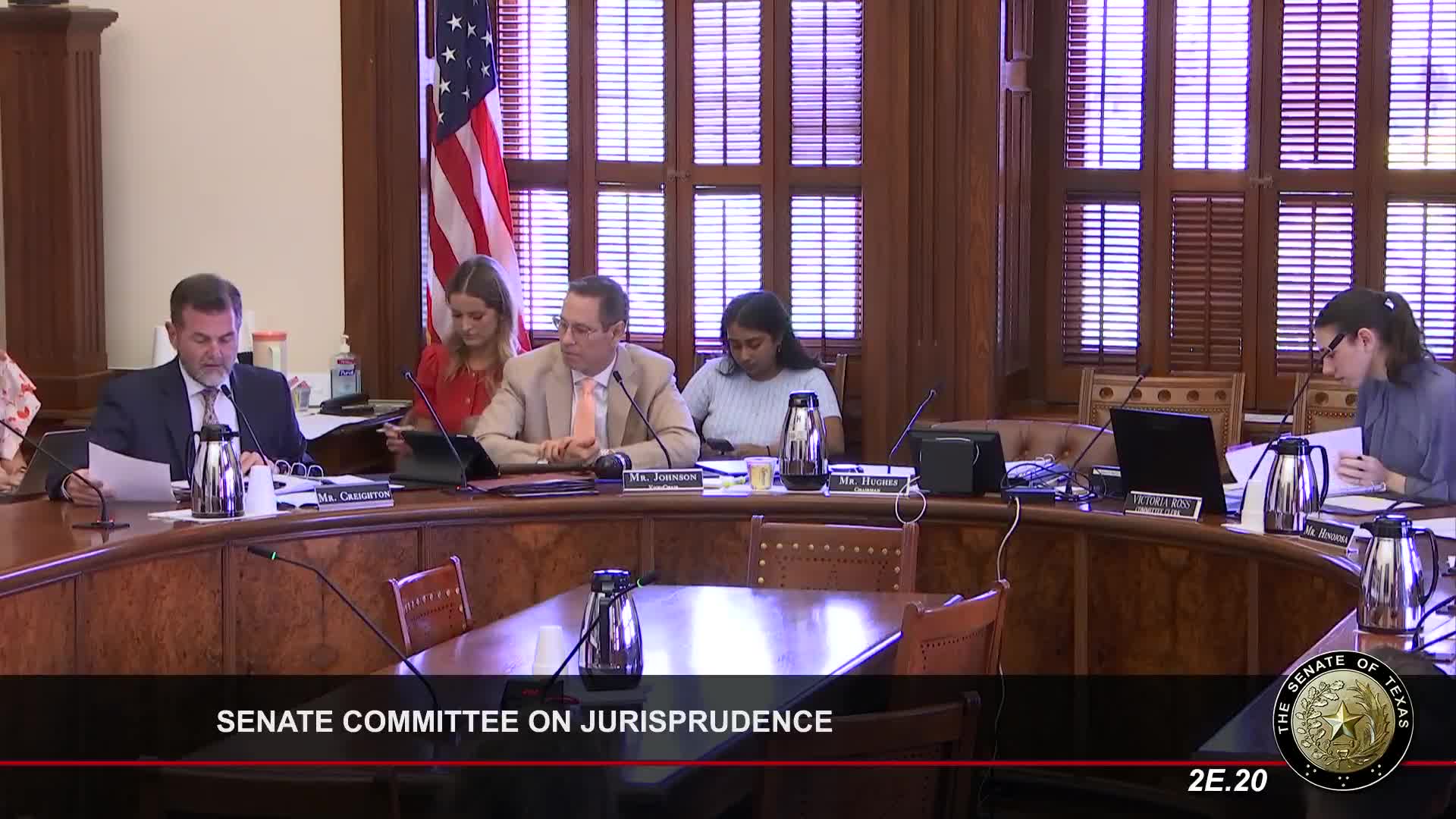
Committee reviews bill to allow direct transfer of manufactured homes without probate
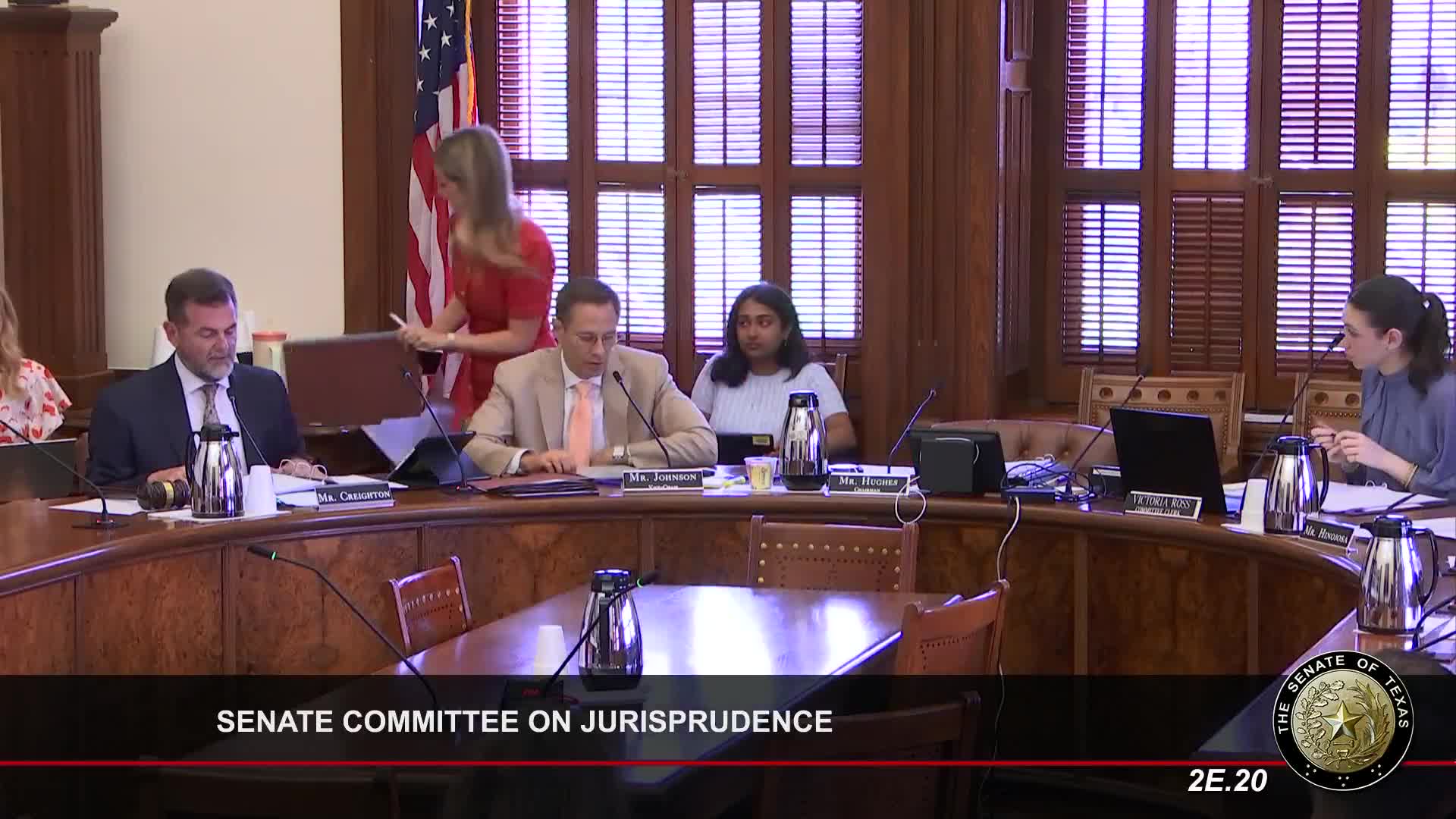
Bill would let informal marriage filers request redaction of identifying information from county online records
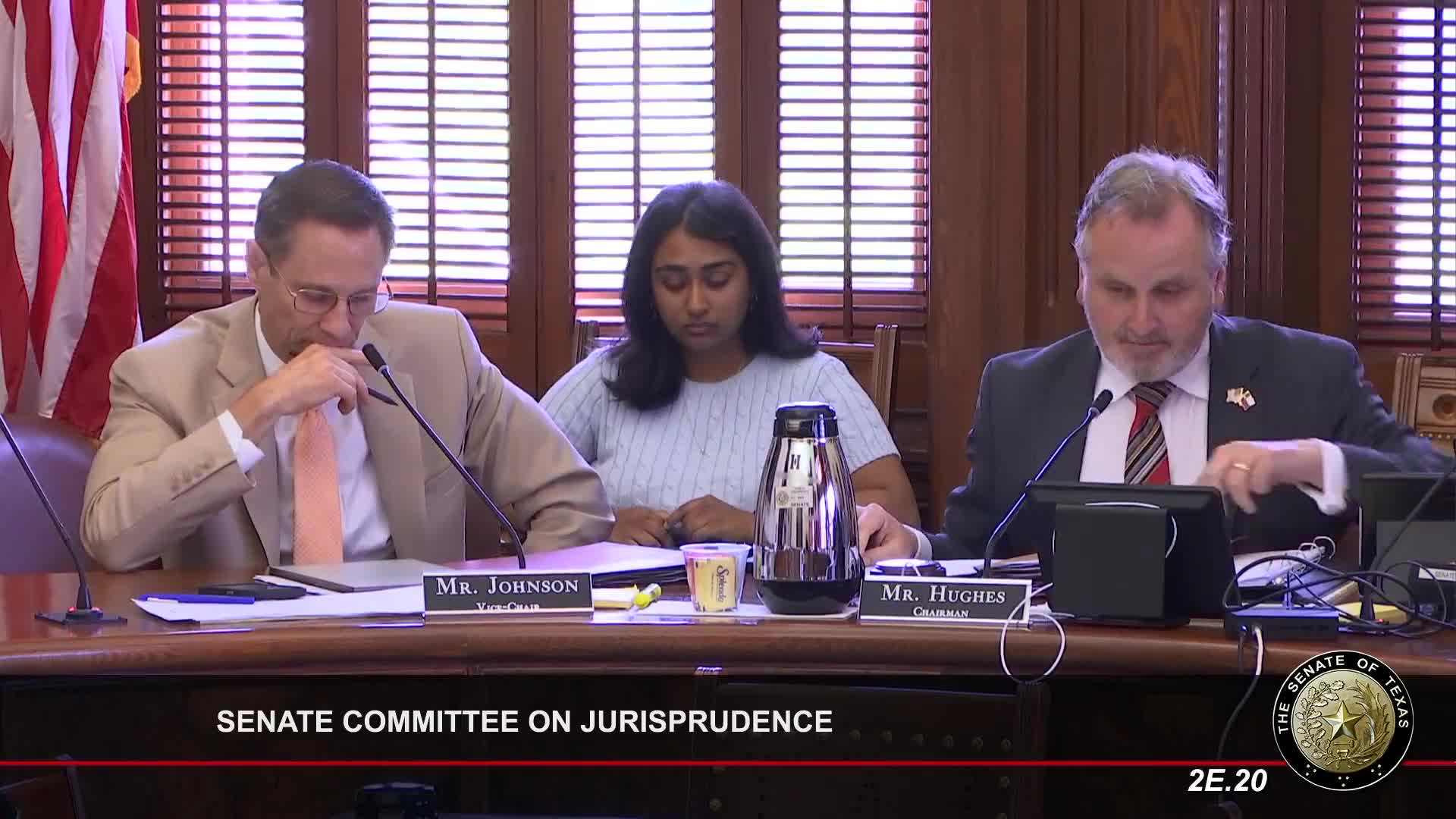
Bill would clarify that sole managing conservator may choose child’s school
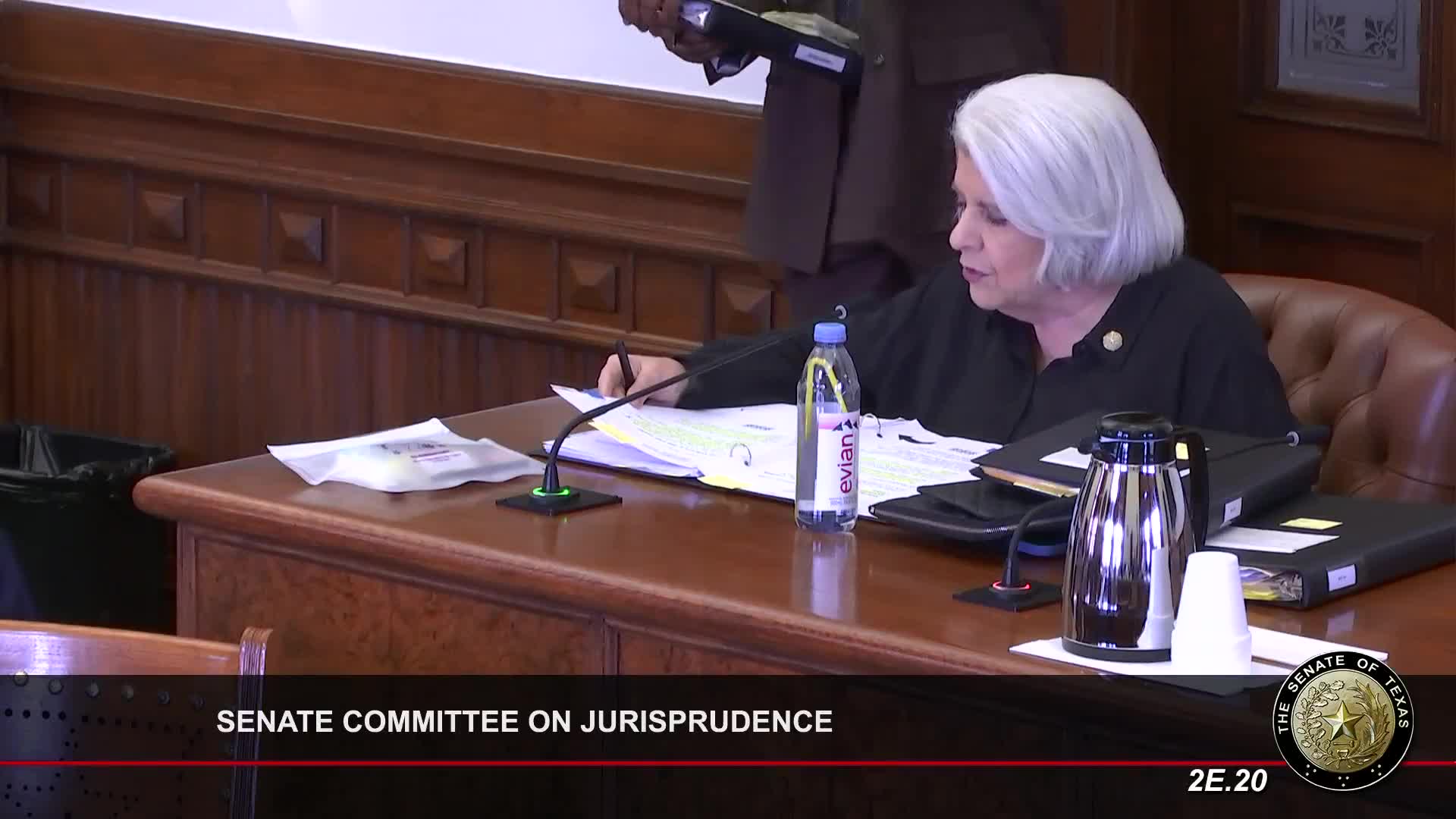
Webb County official backs bill to standardize bailiff appointments and salaries
